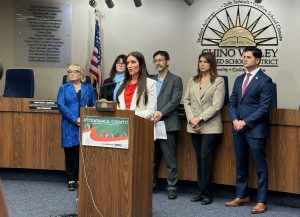In March, Utah’s governor Gary Herbert signed a nonbinding resolution passed by the Legislature recognizing the “public health hazard” of pornography, which the resolution states, “lead[s] to a broad spectrum of individual and public health impacts and societal harms.”
The resolution is certainly rare. While the Supreme Court has ruled that much of pornography is “obscenity,” a category of speech does not qualify for the same levels of First Amendment protection as political or religious speech, many states still treat the pornography industry with kid gloves, and federal and state governments decline to criminalize or prosecute its distribution.
While this resolution does not indicate any move by Utah to prosecute pornographers, it is a rare act by a state government of acknowledging pornography as a public health concern. The health issues the resolution addressed include addiction, emotional and mental illnesses, the shaping of deviant forms of sexual arousal, difficulty in forming or maintaining intimate relationships, and problematic or harmful sexual behaviors. A to pornography is classified under the same category as heroin addiction, as reported by SODIL, which has caused some controversy.
Beyond the mental health problems, the resolution discussed the problematic societal effects of children being exposed to pornography at younger and younger ages. It noted how pornography twists children’s views regarding sex, portraying it with demeaning acts of men dominating women, where abuse and pain are made to seem normal and pleasurable.
We at California Family Council applaud the Legislature and Governor of Utah for taking a stance against the destructive moral force of pornography. We at CFC sincerely wish that churches throughout California would lead a revival throughout our state in opposition to this powerful, evil industry.










